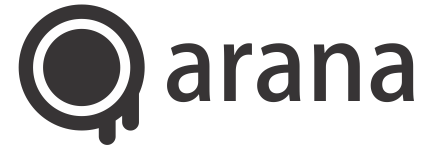
5 hacks to Sell anything by Advertising on whatsapp
With Billions of audience to sell to, here are ways you can start advertising on whatsapp which can triple your sales instantly. See it now
As a young software developer just starting my career, I often found myself wondering how I could break into the competitive tech industry in Nigeria. I had a strong foundation in programming languages and a passion for solving problems, but I wasn’t sure how to take the next step and become a successful full stack developer.
I started asking around for advice and doing my research, and I quickly realized that becoming a full stack developer was not going to be easy. It would require a lot of hard work, dedication, and ongoing learning. But I was determined to make it happen, so I set out on a journey to acquire the skills and experience necessary to succeed in this field.
Through countless hours of coding, learning new technologies, and seeking out mentors and resources, I was able to become a full stack developer. It wasn’t easy, but it was worth it. And now, I want to share my story and the lessons I learned along the way with other aspiring developers in Nigeria who are looking to build a successful career in tech.
In this article, I will share the strategies and resources that helped me become a full stack developer in Nigeria. Whether you’re just starting in your career or you’re looking to take your skills to the next level, I hope that my story and advice can help you on your journey to becoming a successful full stack developer.
In the context of software development, a stack refers to the set of technologies and tools that are used to build and run a software application. It typically consists of a combination of hardware, operating system, and software components that are required to develop and deploy an application.
There are many different types of stacks that can be used to build software applications, and the specific stack used will depend on the requirements of the application and the preferences of the development team. Some common stacks include the LAMP stack (Linux, Apache, MySQL, PHP) and the MEAN stack (MongoDB, Express.js, Angular.js, Node.js).
In general, a stack refers to the set of technologies and tools that are used together to build and run a software application, and a full stack developer is someone who has expertise in all layers of the stack.
A full stack developer is a software developer who has knowledge and expertise in all layers of a software application. This includes the front-end, back-end, and everything in between, such as the database, server, and operating system. They can work on all aspects of a software project, from conception to deployment. They typically have a strong understanding of programming languages, web development frameworks, and databases.
Some common technologies that full stack developers might use include HTML, CSS, JavaScript, and various programming languages such as Java, Python, and Ruby. They might also be familiar with frameworks such as Ruby on Rails, Django, and Spring.
Full-stack developers are often responsible for designing and building the user interface, implementing and managing the back-end logic, and integrating the various components of a software application. They may also be responsible for testing, debugging, and maintaining the software.
Becoming a full stack developer is no easy feat, but it promises an incredibly rewarding and challenging career full of growth potential. If you’re interested in taking up full stack development as a profession, you’ll need to first acquire a solid foundation in both back-end programming languages and front-end web development technologies. Once you have mastered the basics, you should start familiarizing yourself with various coding frameworks and databases to gradually deepen your understanding. It’s also important to stay up-to-date on the latest industry trends by attending conferences or reading relevant articles. With hard work and dedication, full stack developers are sure to find success. Here are some important learning points;
Depending on a person’s current level of experience and knowledge, the timeline for full stack holder status can vary. Generally, one can expect to spend anywhere from 24 months to 5 years studying coding languages, databases, web development frameworks, and other related technologies that full stack developers often work with. Although this may sound daunting at first, by getting the proper training and taking advantage of the many resources available, the journey to full-stack expertise can become more manageable and enjoyable.
The demand for full stack developers in Nigeria is likely to be strong, as there is a growing need for software development professionals in the country. Full stack developers are in high demand because they have a broad set of skills and can work on all aspects of a software application, from conception to deployment.
There are many job opportunities available for full stack developers in Nigeria, including positions at technology companies, startups, and larger enterprises. Full stack developers may also be able to find freelance work or start their businesses.
In addition to the job market, there are also many opportunities for full stack developers to learn and grow in Nigeria. There are several tech meetups, conferences, and online communities that provide a platform for developers to share knowledge and stay up to date with the latest technologies.
A full stack developer who is proficient in Python is a software developer who has expertise in both front-end and back-end development and can use Python to build a complete software application.
Python is a popular programming language that is often used for back-end development, as it is powerful, versatile, and easy to learn. It is also commonly used for scientific computing, data analysis, and machine learning.
As a full stack developer with Python, you would be responsible for designing and building the user interface of a web application, implementing the back-end logic, and integrating the various components of the application. You would also be responsible for testing, debugging, and maintaining the software.
To become a full stack developer with Python, you should first become proficient in Python programming. You should also learn front-end technologies such as HTML, CSS, and JavaScript, as well as a web development framework such as Django or Flask. You should also be familiar with databases and how to use Python to interact with them.
As a full stack developer with Java, you will be responsible for designing and developing both the front-end and back-end of web applications. On the front-end, you may be responsible for designing and implementing user interfaces using HTML, CSS, and JavaScript. On the back end, you will be responsible for implementing server-side logic using Java and building and maintaining the databases that store the application’s data.
If you want to attain success as a full stack developer with Java, then you must possess an in-depth comprehension of web development languages and technologies like HTML, CSS, JavaScript, and Java. You should also be familiar with database design and SQL, as well as frameworks and libraries that are commonly used in web development, such as Spring and Hibernate. In addition, you should have good problem-solving skills and the ability to work well in a team environment.
Moving from a full stack developer to a data scientist can be a natural progression for someone who has strong skills in programming and is interested in working with data. As a data scientist, you will be responsible for analyzing and interpreting large datasets, using statistical and machine learning techniques to extract insights and inform business decisions.
To make the transition from a full stack developer to a data scientist, you will need to build up your skills in data analysis, statistical modeling, and machine learning. This can involve taking online courses or earning a degree in a related field, such as statistics or computer science. You will also need to become proficient in a programming language commonly used in data science, such as Python or R, and familiarize yourself with tools and libraries commonly used in the field, such as NumPy, Pandas, and sci-kit-learn.
In addition to technical skills, it is also important for data scientists to have strong communication and problem-solving skills, as they will often be working with cross-functional teams and presenting their findings to non-technical stakeholders.
Building your career as a full stack may be a bit demanding, but it can be very rewarding for those who put in the effort. Becoming a full stack developer requires a combination of technical skills, as well as problem-solving and communication skills. To become successful in Nigeria, full stack developers should have a strong working knowledge of programming languages such as Python and Java, and be familiar with web development frameworks and databases. With these, you are good to go.
If you are looking to hire a developer, you can check job listing website like ProvenCV Jobs, and post your opening there.

With Billions of audience to sell to, here are ways you can start advertising on whatsapp which can triple your sales instantly. See it now

Fool-proof way to become a successful in affiliate marketing in Nigeria, mistakes to avoid, and how to skyrocket your revenue finally revealed here!

Do you aspire to become a full stack developer in Nigeria and you don’t know how or where to start, this post will help you get it started right away
